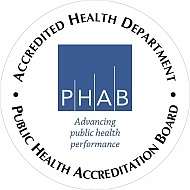What is a confirmed case? What is a probable case?
In monitoring and analyzing the outbreak, public health investigators designate each symptomatic case as either a confirmed case (a proven case) or a probable case (very likely case). At the end of each case investigation, these classifications (confirmed or probable) are final and are reported to the New York State Department of Health (NYSDOH).
A confirmed case has evidence of the presence of the mumps virus (through lab testing) along with any of the following signs or symptoms:
- Acute parotitis or other salivary gland swelling (lasting at least 2 days), aseptic meningitis, encephalitis, hearing loss, orchitis, oophoritis, or mastitis
A probable case has acute parotitis or other salivary gland swelling (lasting at least 2 days) OR unexplained orchitis or oophoritis in a person with:
- A positive anti-mumps immunoglobulin M (IgM) antibody OR
- Epidemiologic linkage to another probable or confirmed case in the SU campus community (in this current outbreak)
What is Mumps?
Mumps is a serious contagious viral disease that is passed through saliva and respiratory secretions of an ill individual. Most people recover completely in a few weeks. There is no specific treatment.
How can I get infected with mumps?
You can get infected with mumps through the air from an infected person’s cough or sneeze. You can also get it by direct contact with a contaminated surfaces such as doorknobs, tables, and counters.
What are the symptoms of mumps?
After a person is exposed to mumps, symptoms usually appear in 16-18 days, but this period can range from 12 to 25 days after infection. The symptoms are usually: low-grade fever, headache, muscle aches, fatigue, loss of appetite, and swollen or tender salivary glands under the ears on one or both sides. Some people who get mumps have very mild or no symptoms, and often they do not know they have the disease.
How long is a person with mumps contagious?
A person with mumps can pass it to others from 2-3 days before the swelling starts until five days after the swelling begins.
I got the vaccine but I still got mumps. Does this mean the vaccine doesn’t work?
The Measles, Mumps, and Rubella (MMR) vaccine prevents most, but not all, cases of mumps and complications caused by the disease. People who have received two doses of the MMR vaccine are about nine times less likely to get mumps than unvaccinated people who have the same exposure to mumps virus. However, some people who receive two doses of MMR can still get mumps, especially if they have prolonged, close contact with someone who has the disease. If a vaccinated person does get mumps, they will likely have less severe illness than an unvaccinated person.
How do I prevent mumps from spreading?
Staying home while sick with mumps is an important way to avoid spreading the virus to other people. People who are infected with mumps don’t get sick right away—it can take up to 25 days for them to show signs of infection. In addition to staying away from others when you have mumps, you can help prevent the virus from spreading by:
- Covering your mouth and nose with a tissue when you cough or sneeze, and put your used tissue in the trash can. If you don’t have a tissue, cough or sneeze into your upper sleeve or elbow, not your hands.
- Washing your hands often with soap and water.
- Avoiding sharing drinks or eating utensils.
- Disinfecting frequently touched surfaces, such as doorknobs, tables, and counters.
What should I do during a mumps outbreak?
Make sure you are up to date on your MMR vaccine. Let your doctor know right away if you think that you or someone in your family may have mumps.
In any situation, including when there is a mumps outbreak, washing hands often with soap and water, covering your mouth and nose when you cough or sneeze, avoiding sharing drinks and utensils, and disinfecting surfaces are the most important steps you can take to avoid getting sick and spreading germs to others.
My child attends Syracuse University (SU). Where can I get more information about the mumps situation at SU?
For more information parents and students can contact the 24-hour call line at SU Health Services at 315.443.9005 or visit the SU Health Services Mumps and Vaccinations page.
Learn More: Visit the CDC or NYSDOH mumps pages.
|


